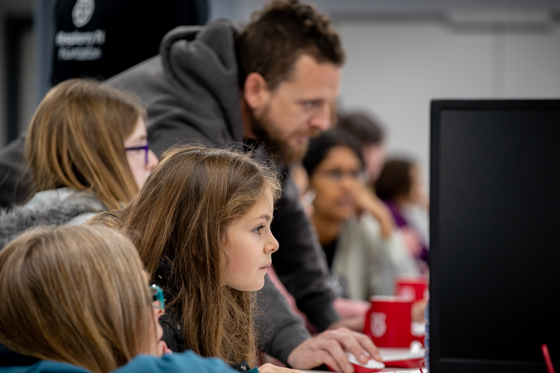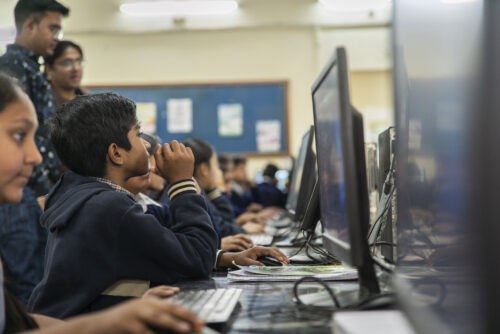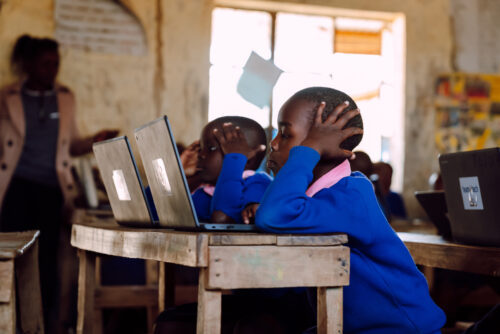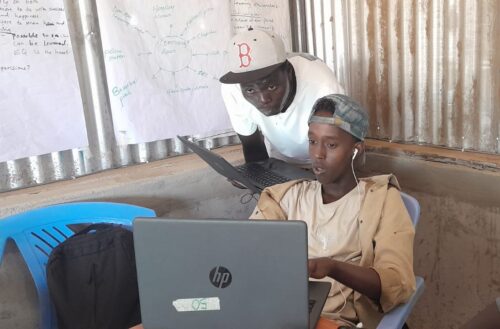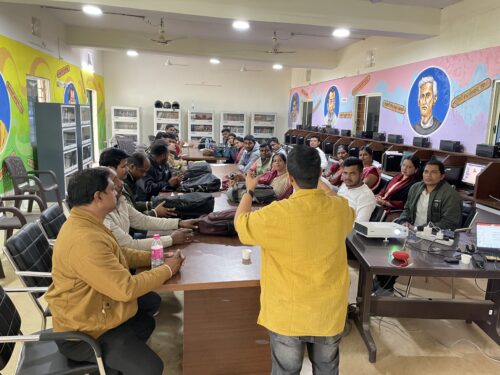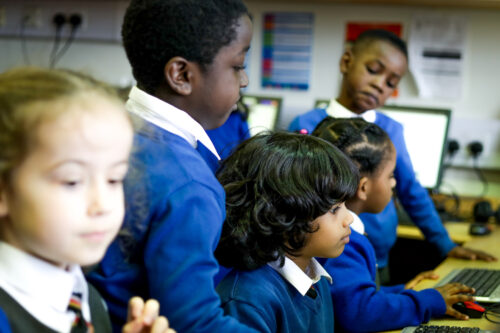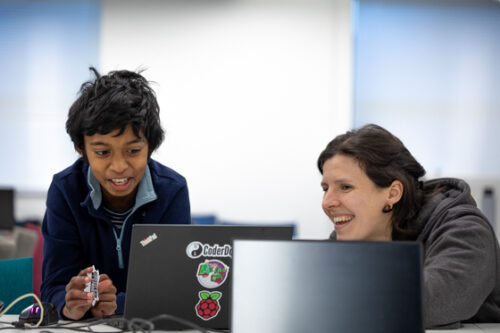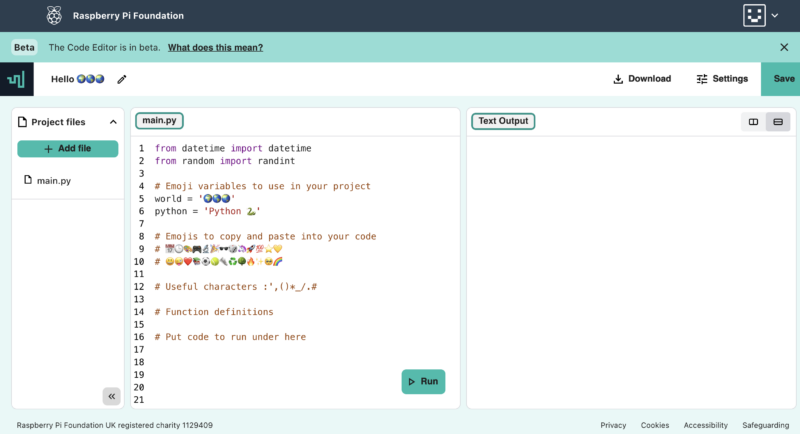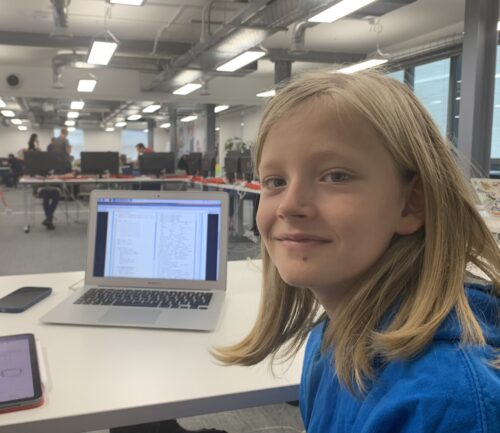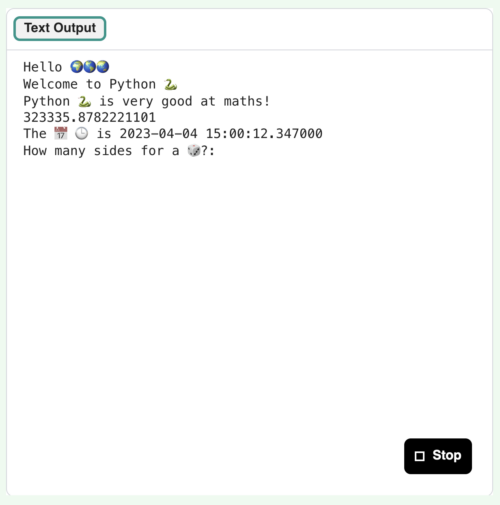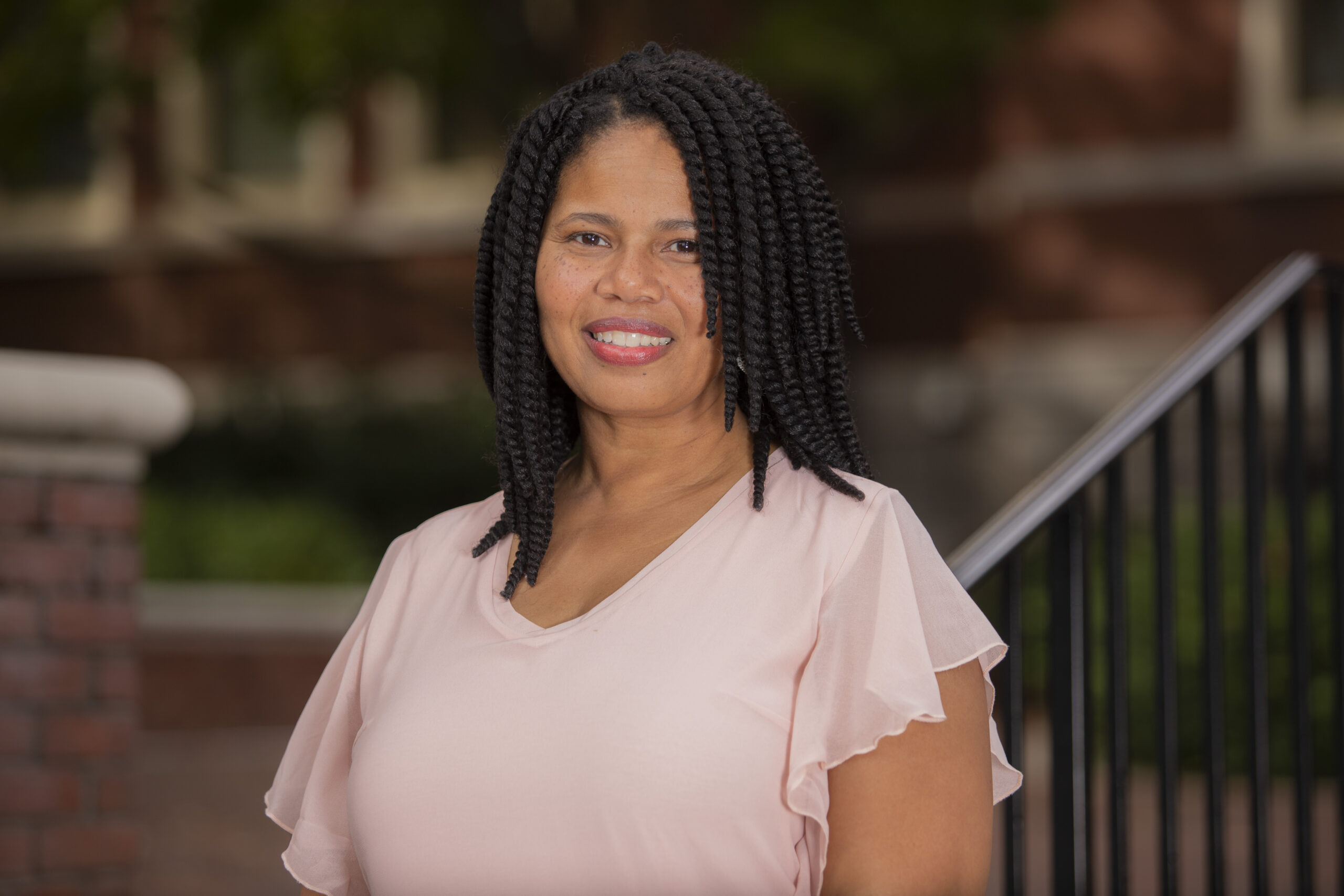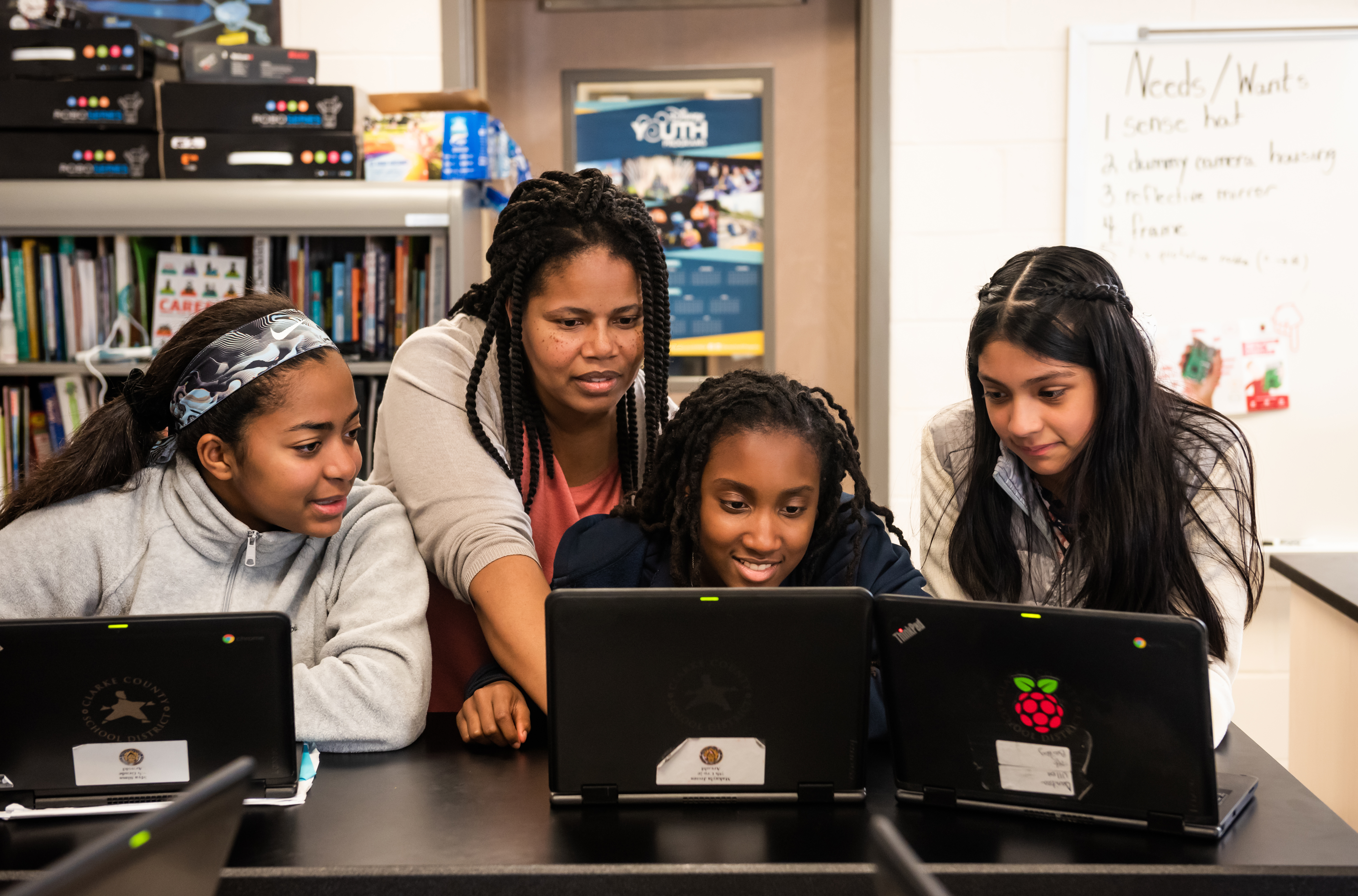Post Syndicated from Ben Durbin original https://www.raspberrypi.org/blog/theory-of-change-2024/
One of the Raspberry Pi Foundation’s core values is our focus on impact. This means that we are committed to learning from the best available evidence, and to being rigorous and transparent about the difference we’re making.
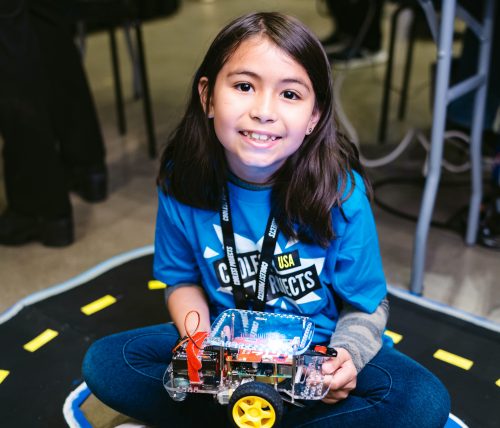
Like many charities, an important part of our approach to achieving and measuring our impact is our theory of change. We are excited to launch a newly refreshed theory of change that reflects our mission and strategy to ensure that young people can realise their full potential through the power of computing and digital technologies.
What is a theory of change?
A theory of change describes the difference an organisation aims to make in the world, the actions it takes to achieve this, and the underlying assumptions about how its actions will create change.
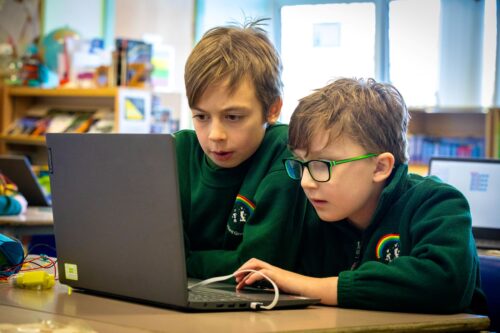
It’s like a good cake recipe. It describes the ingredients and tools that are required, how these are combined, and what the results should be. But a theory of change goes further: it also addresses why you need the cake in the first place, and the reasons why the recipe will produce such a good cake if you follow it correctly!
What is the change we want to make?
Our theory of change begins with a statement of the problem that needs solving: too many young people are missing out on the enormous opportunities from digital technologies, and access to opportunities to learn depends too much on who you are and where you were born.
We want to see a world where young people can take advantage of the opportunities that computers and digital technologies offer to transform their own lives and communities, to contribute to society, and to help address the world’s challenges.
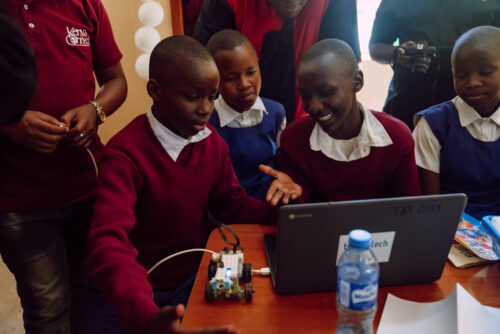
To help us empower young people to do this, we have identified three broad sets of outcomes that we should target, measure, and hold ourselves accountable for. These map roughly to the COM-B model of behaviour change. This model suggests that for change to be achieved, people need a combination of capabilities, opportunities, and motivation.
Our identified outcomes are that we support young people to:
- Build knowledge and skills in computing
- Understand the opportunities and risks associated with new technologies
- Develop the mindsets to confidently engage with technological change
How do we make a difference?
We work at multiple levels throughout education systems and society, which together will achieve deep and long-lasting change for young people. We design learning experiences and initiatives that are fun and engaging, including hundreds of free coding and computing projects, the Coolest Projects showcase for young tech creators, and the European Astro Pi Challenge, which gives young people the chance to run their computer programs in space.
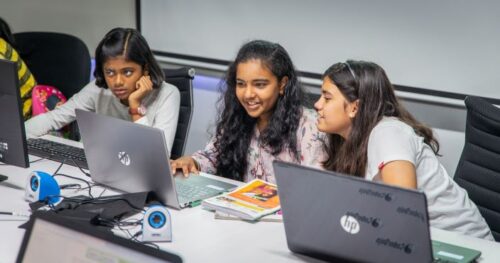
We also support teachers, youth workers, volunteers, and parents to develop their skills and knowledge, and equip them to inspire young people and help them learn. For example, The Computing Curriculum provides a complete bank of free lesson plans and other resources, and Experience AI is our educational programme that includes everything teachers need to deliver lessons on artificial intelligence and machine learning in secondary schools.
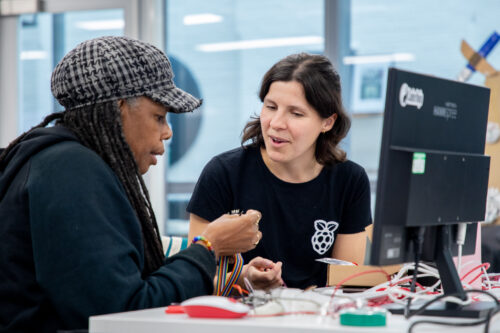
Finally, we aim to elevate the state of computing education globally by advocating for policy and systems change, and undertaking our own original research to deepen our understanding of how young people learn about computing.
How will we use our theory of change?
Our theory of change is an important part of our approach to evaluating the impact of our resources and programmes, and it informs all our monitoring and evaluation plans. These plans identify the questions we want to answer, key metrics to monitor, and the data sources we use to understand the impact we’re having and to gather feedback to improve our impact in future.
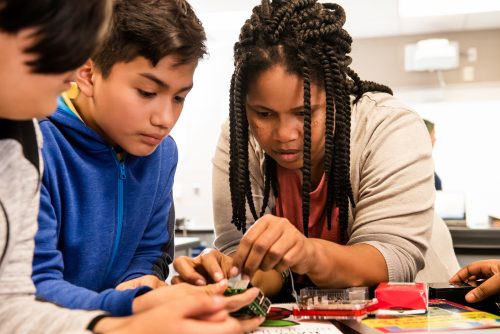
The theory of change also informs a shared outcomes framework that we are applying consistently across all of our products. This framework supports planning and helps keep us focused as we consider new opportunities to further our mission.
A final role our theory of change plays is to help communicate our mission to other stakeholders, and explain how we can work with our partners and communities to achieve change.
You can read our new theory of change here and if you have any questions or feedback on it, please do get in touch.
The post Our new theory of change appeared first on Raspberry Pi Foundation.
